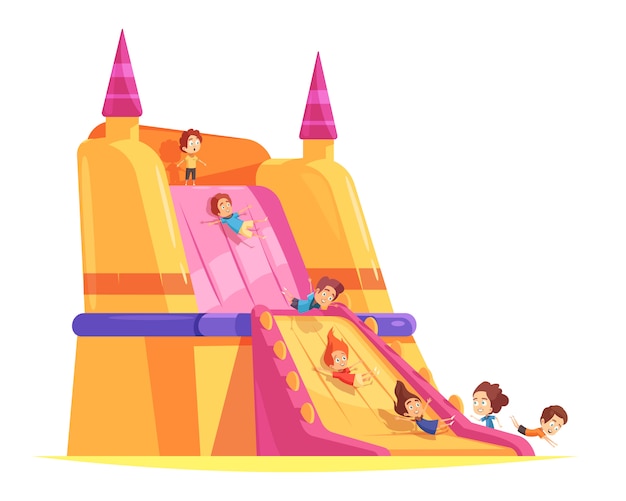Guide To Corporate Events Planning
Plan your Corporate Event. This guide will show you through every step of the corporate event planning process.
In a business setting, events are frequently organized to communicate company strategy, modify internal business behavior, introduce a product or service, encourage, train, or reward employees, or impact customer behavior.
Are you considering organizing an event for your business? Have you any idea where to start? When it comes to preparing a business event, what are the must-haves? In this essay, I'll answer these questions and walk you through the corporate event planning process. Influence customer behavior towards the brand from the outside.
What Is The Definition of A Corporate Event?
Corporate events can include a new product launch, a celebration of your marketing or sales team's accomplishments, or a team picnic in the countryside.
A corporate event, when planned by a corporation, can be focused on its staff (team building activities, corporate meetings) or its clientele (trade shows, client appreciation events, product launches). The former is a terrific approach to show your staff how much you care about them and how important they are to the company. Employees are, after all, a company's most precious resource.
Organizing A Successful Business Event
It's critical to lay out all that has to be done before preparing a corporate event. Before planning a corporate event, there are a few things you should know and keep in mind:
- Make a list of your aims and goals
Setting a type and goal for your event is the first and most important thing you must do. Determine the theme of your business event as well as the goal of the event. Having a clear goal can help you run things efficiently, whether it's a team picnic, a team meeting, or anything else.
The people who will be attending should be the major emphasis, so keep their wishes and expectations in mind. Be a list of what your visitors would expect from your event and make sure to incorporate them.
- Determine the budget for the event
It's time to figure out your budget after you've determined your event's goal. When settling on a budget, take into account all of the potential costs associated with the event. Set budget constraints to prevent yourself from overpaying.
Reduce your expenses as much as possible and negotiate to price whenever possible. When distributing resources, this will help you save a lot of money.
- Create a guest list
It's time to develop a guest list (if it's a client-specific event) or build an attractive invitation card for your staff (if it's an internal event) after you've planned the budget and set the goal.
Pre-event audience identification will assist you in selecting the proper equipment and services.
Create a one-of-a-kind, original cards that look fantastic and distribute them to your attendees. Send invitations one or two weeks before the event if your goal is to attract or entertain clients.
- Pick a location
After you've completed the guest list, the following step is to choose a location. The trick is to pick a location that will make the celebration unforgettable.
When you're doing this, keep your budget in mind. Choose a location that will appeal to your target audience as well as your personnel. Furthermore, your venue should have a theme that fits the event's goal.
Choose a valid date that avoids major holidays, and book the venue days ahead of time to avoid any last-minute issues.
- Make time for marketing
If your event is open to the public, you will need to devote time and resources to marketing and advertising it. If your event is internal, however, this does not negate the need to publicize it. To establish a successful event, you must instill excitement in all of your attendees in the weeks leading up to the event.
- Make all of the necessary preparations
After you've completed all of the above, it's time to make all of the necessary preparations for the impending event.
Choose a name for your event and a theme, then gather all of the necessary equipment and supplies. Gifts, prizes, mementos, and diplomas should all be prepared ahead of time if an award ceremony is planned. Also, don't forget to set up all of the essential equipment, such as speakers, microphones, cameras, chairs, tables, projectors, and so on.
- Keep an eye on things and evaluate them
Keep track of your event's budget, objectives, venue, and other pertinent details to ensure that everything is in order. You'll also need to keep track of all of the costs incurred during the event. One of the most crucial components of planning a corporate event is to consider this.
- Gather and Share Thoughts
A corporate event is an ideal setting for gathering and sharing innovative ideas. Find strategies to collect ideas from your participants during the event to improve your organization or products.
- Encourage people to take part
Encourage your guests to participate and relax by encouraging them to have fun. Your event will be a success if your attendees are happy.
If the event is a product launch, make sure that everyone in attendance participates in the demo. If the event is a team event, such as a picnic, make sure that every employee takes part in the activities.
- Make Connections and Network
Have a designated individual meet every visitor at the door. A corporate event is an excellent opportunity to network and meet potential clients.
Make an effort to get to know your personnel as well as your guests. As a result, new opportunities for partnerships and connections will arise.
- After the Event Follow-Up
After a successful corporate event, the best way to wrap it up is to perform a follow-up.
By sending emails, thank everyone who came to your event. If you're short on time, use pre-written content and emails. Post-event emails are also an effective approach to promote new items and services.

